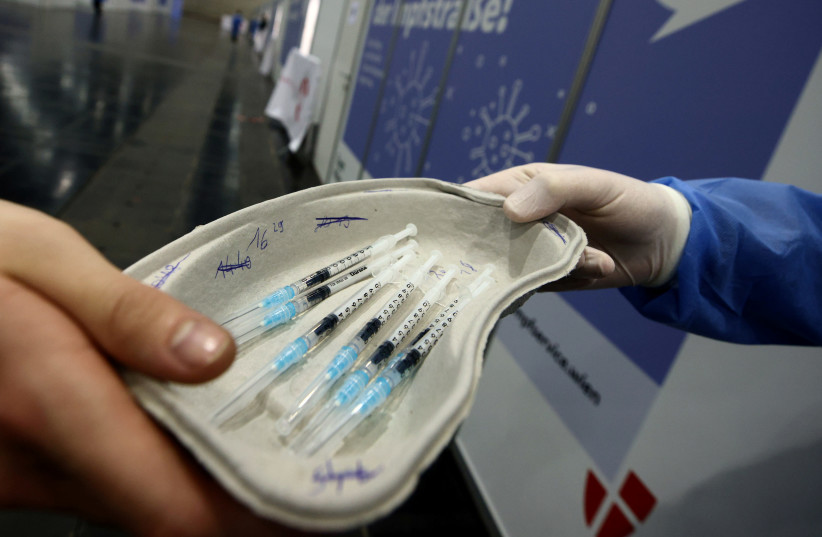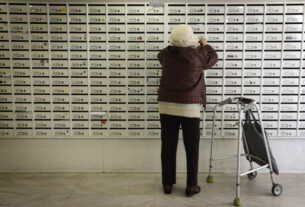
The current security tensions are delaying the start of vaccinating children against coronavirus, a Health Ministry official said, and that the ministry is holding consultations with all relevant actors and will probably issue an official directive within the next two weeks.
The US Food and Drug Administration granted emergency authorization on May 11 to administer the Pfizer-BioNTech vaccine – the one that has been used in Israel – to children aged 12 to 15.
After the vaccine was approved on December 11 for emergency use for those over 16, Israel began its vaccination campaign a week later, on December 19.
But the official said the two situations cannot be compared: at the end of 2020 the pandemic was raging, and thousands of new cases were identified every day in January when the number of seriously ill patients reached 1,200, several hundred more than what the health system could handle without compromising the quality of care.
Today, however, corona has become marginal: the number of new daily cases does not exceed a couple of dozen, and the number of serious patients on Thursday stood at 62.
For this reason, the official said, the Health Ministry is not rushing to start vaccinating children but is taking time to formulate the best policy.
“We are debating whether to recommend children get vaccinated or just allow them to do so,” the official said. “The difference might sound trivial, but we believe it is very important to craft the right message for the public.”
if(window.location.pathname.indexOf(“656089”) != -1){console.log(“hedva connatix”);document.getElementsByClassName(“divConnatix”)[0].style.display =”none”;}
One of the main medical issues that health officials and experts are considering is the possible connection between the vaccine and myocarditis, an inflammation of the heart muscle.
An internal report last month by the committee of experts tasked by the ministry to monitor the inoculation’s side effects showed that about one in 100,000 people who received the Pfizer vaccine suffered from myocarditis.
While the experts said further investigation was needed to confirm the connection between the vaccine and the phenomena, the document showed that most cases were reported among young men 18-30.
The official said that the ministry is working on gathering and studying all the relevant data, especially when considering the young age of those who reported the condition.
Most experts in Israel have expressed support for inoculating children, including the Israel Pediatric Association and the Israeli Society for Pediatric Infectious Diseases.
In a position paper released last month, they said that while children are less likely to suffer from a severe form of the infection, COVID has still led to hospitalization, death or persistent symptoms for some.
Some doctors have, however, also expressed the opposite view: 93 physicians signed a letter in April urging the minister to wait.
“Some 300,000 children in Israel have been infected with COVID, more than 1,000 were hospitalized, and seven children died,” said Prof. Yackov Berkun, head of Pediatrics at Hadassah-University Medical Center, on Jerusalem’s Mount Scopus, and secretary-general of the Israel Pediatric Society. “In addition, many children developed a severe inflammation related to COVID, the multi-system inflammatory syndrome, which involves gastrointestinal problems, severe abdominal pain, heart inflammation and more.
“According to my calculations, about one in 500/600 infected children developed this inflammation, which is a pretty high rate. For these reasons, I believe it is right to vaccinate children.”
Asked about the possible connection between the vaccine and myocarditis, the professor said it is important to look at the data and study the phenomena, but even if further research confirmed a link between inoculation and myocarditis in one in every 100,000 individuals, he would still probably recommend the vaccine.
“Complications from infection are much more likely,” Berkun said. “This is how medicine works: one of the most common medications that people use, paracetamol, is one of the most frequent causes of severe liver diseases, but people do not think about it.
“However, I understand that with such a low number of active coronavirus cases in the country, the chances of getting infected are small and therefore someone might feel differently. In my opinion, though, when the ministry gives its authorization, vaccinating children will be the right choice.”
The official remarked that the ministry expects many parents to be hesitant to vaccinate their children, and that their goal is to achieve the broadest possible consent.
The events of the past few weeks, including the tragedy at Meron and the security tensions, have also slowed down the process, he said.
The ministry will likely adopt and announce its policy within the next two weeks.




